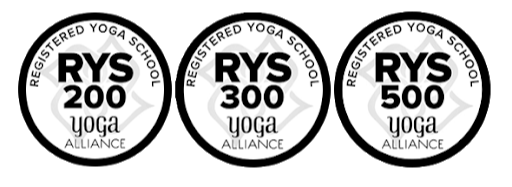East versus West - Yoga Teacher Training

You are researching your 200 hour Yoga Teacher Training and can't decide whether you want to train in the East or the West?
Perhaps you are thinking of going to the home country of yoga in India, perhaps Bali or South East Asia? Is combining travel, yoga and teacher training too much of an adventure and risk?
Before you commit to a program take a look at my pros and cons to trainings in the East versus the West to help you consider both options;
East +
-
First and foremost yoga originated in the East more than 5000 years ago. It is the veritable home of yoga. As such you will get an authenticated experience from training here in the birthplace of yoga. Yoga is seen much more as a way of life instead of something that you do for an hour after work.
-
Secondly the experience will most certainly be a trip of a lifetime with exposure to different cultures, ways of living, language, food and people. You will enrich your life with the experience and embrace a new culture.
-
You might have the opportunity to explore the area more extensively and go sight seeing.
East -
-
As this is probably a once in a lifetime trip it is not likely that you will go back to where you trained.
-
As the culture is much different to what you know you are perhaps more likely to feel homesick, coupled with the fact that you are expected to learn how to become a yoga teacher it might be too much to take in one go. Will the exposure to a different way of life hinder you from learning? You might feel discomfort, suffer from illness due to a change in diet.
-
The teachings might differ from what you might learn in a Western school, yoga in the East is more traditional with less emphasis on music in class, it is still subject to gender inequality with most of the teachers being men.
-
Quality of teaching and conditions of training centres can be hit and miss. It is a big investment and you have more legal comfort in the west for compensation if things do not go well.
West +
-
If you choose to train in the West you have already had exposure to that culture therefore you will know more or less what to expect from people. This means that you are less likely to feel homesick and to feel more at home, enabling you to focus entirely on learning.
-
Teachings that you will be exposed to will be relevant to the West, for example you will have the addition of music in class, perhaps more freedom of expression like merging yoga and dance, you will not be subject to gender inequality. Many schools in the West offer Ashram style living where you get to experience the full yogic lifestyle offered in the East but without the cultural differences.
-
You are able to focus entirely on your learning and not be distracted by new experiences or wanting to sight see instead of studying!
-
You are more likely to revisit your training centre and stay in touch, it is unlikely to be one off visit as many Western training centres offer graduate programs to maintain a sense of community amongst their students. You might even be able to go back and teach at your centre.
West -
-
Firstly there are some people do not think it is authentic to learn in the West and that to be a real yoga teacher you need to learn in the East. This is of course only one opinion and some of the best yoga teachers have never been to India.
-
Perhaps you might think it is less of an adventure to train in the West, we all love to experience different cultures and different ways of life.
In conclusion if you are looking for a yoga immersion or an advanced yoga holiday where you get an insight to yogic life in India but you are not necessarily serious or sure about becoming a full or part time yoga teacher then why not go to the East.
If you are focused on becoming a teacher, seeking self improvement, community, support and assurance then you will be better off choosing a School with a good reputation in the West.
If you need more assistance in making a decision please get in touch for advice, I will be more than happy to help.


